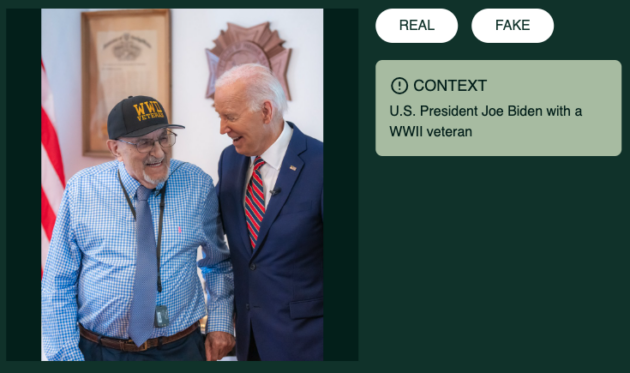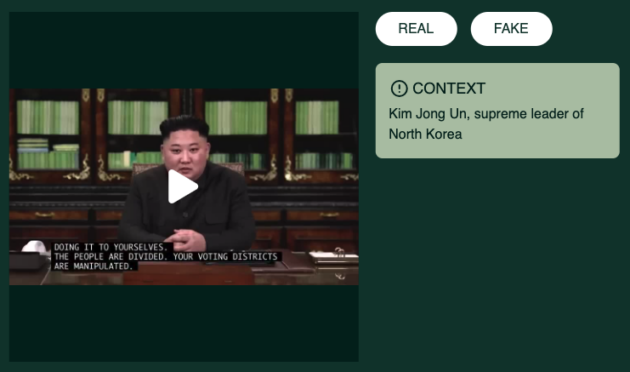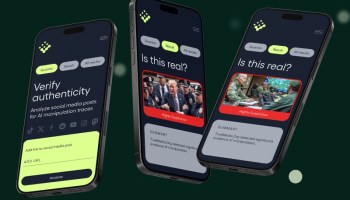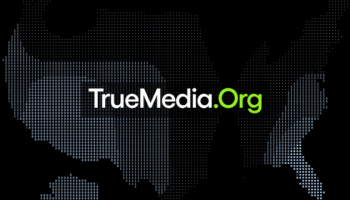
A new quiz from Seattle-based AI nonprofit TrueMedia tests how well people can spot deepfake images, videos and audio clips, highlighting the need for people to be aware of what’s real online content and what’s not as we head toward election season.
The quiz, released Thursday, assess a “deepfake IQ” after a user answers 10 questions with the option of choosing “real” or “fake” on a variety of politically related media.
It shows a photograph of President Biden standing with a WWII veteran, or a video of former President Donald Trump speaking at his recent trial in New York City. Other questions feature videos of Russian President Vladimir Putin and North Korean leader Kim Jong Un.

Oren Etzioni is the founder and head of TrueMedia, which launched six months ago to develop a free, web-based, AI-powered tool that acts as a deepfake detector. A University of Washington professor and former CEO of the Allen Institute for AI, Etzioni said the main objective with such a quiz, beyond shedding light on TrueMedia, is to wake people up to what’s potentially circulating online.
“This is a major social problem, and most of us struggle with it,” Etzioni said, pointing to a November 2021 study published in the journal iScience on why people cannot reliably detect deepfakes.
New technology and advances in AI are making it increasingly easy to create convincing deepfakes. TrueMedia, which is nonpartisan, views this as a major concern ahead of a critically important election.
“Where it used to be that this was only something that state actors could do, now, unfortunately, anybody could do it,” Etzioni previously told GeekWire, adding his concern about the possibility of “a kind of disinformation terrorism.”

As a journalist who likes to consider himself fairly plugged in to current events, I leaned on that belief to see if it would help me with the quiz. I managed to score 80%, missing on one manipulated image that I thought was real and one video that I thought was fake. I also guessed on a couple, which proves that I didn’t really know if they were real or fake.
After selecting real or fake, the quiz provides the correct answer, with explainer text such as “this is a fake video … TrueMedia.org detected substantial evidence of manipulation.”
The New York Times also released a quiz in January, testing readers’ ability to identify real human faces and those generated by AI. I only guessed four correct answers out of 10 on that difficult test.
Asked what things people should key in on to help detect deepfakes, Etzioni said you can’t rely on the “naked eye,” and that a tool like TrueMedia will help when it’s broadly available to the public.
“In addition, I would encourage everyone to check their sources,” he said. “What is the origin of this social media post? This image? Is it bona fide?”
TrueMedia plans more quizzes and interactive features in the months ahead to raise awareness of the deepfake issue and, Etzioni said, to broaden the availability of tools to prevent the impact of that content in time for the upcoming elections.
Related:


